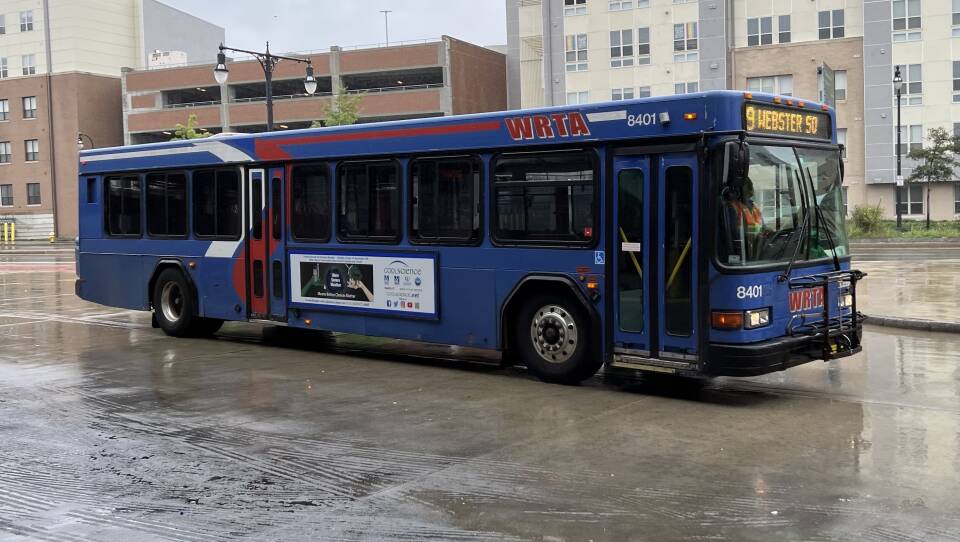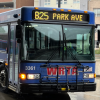Buses around Central Massachusetts will remain free for another year after an advisory board for the Worcester Regional Transit Authority voted Thursday to continue its no-fare policy.
The WRTA will use about $3.6 million in federal pandemic relief money to cover lost fare revenue from the free buses. The vote ensures the WRTA remains one of the few transit systems nationwide with a no-fare policy.
“Thank you to the Worcester Regional Transit Authority’s Advisory Board for today’s historic vote,” the advocacy group Zero Fare Coalition said in a statement after the vote. “By extending the zero fare bus program through June of 2024, the WRTA is bringing continued financial relief and access to public transit to Worcester-area families and residents.”
The transit agency began considering free buses in 2019 to boost ridership and make transit more affordable. In 2020 during the pandemic, the WRTA moved forward with zero fares to ease congestion and allow social distancing. Board members have since extended the policy multiple times amid growing public support for free buses and an infusion of federal pandemic relief funding.
The most recent extension was supposed to expire at the end of June this year. But in March, a WRTA advisory committee recommended the transit agency exclude fare revenue from its 2023-2024 budget and continue the free service. The WRTA could tap into $20 million in CARES Act funding to pay for the free buses.
Thursday’s board vote to accept that recommendation comes a day after the nonprofit Worcester Regional Research Bureau released a report showing the WRTA is the only regional Massachusetts transit agency that has not only met but exceeded pre-pandemic ridership on buses.
In 2020, WRTA ridership plunged to about 1.9 million total rides. But it then saw steady growth in 2021 and reached about 3.6 million rides in 2022, a 140% increase over pre-pandemic levels. The research bureau report said the “exceptionally speedy recovery” could be due in part to the free bus policy.
Riders also have praised the fare-free bus service. At Worcester’s main transfer station, Cheryl Andujar of Worcester recently said she lives on a fixed income of about $1,100 a month and rides the bus every day to shop for groceries and visit her doctors. She said not having to pay bus fares helps her save money for other expenses, like her cellphone and electricity bills.
“I love it,” she said. “A lot of people can’t even afford the bus. … This way everybody can get around.”
The Zero Fair Coalition said Thursday’s vote makes the WRTA the longest running fare-free regional transit system in the country. The Merrimack Valley Regional Transit Authority is the only other Massachusetts system to have a similar multiyear policy. The MBTA has made three of its bus routes free through February 2024.
Despite the unanimous support for the zero-fare extension at Thursday’s meeting, WRTA advisory board members noted the federal pandemic relief money funding the policy will eventually dry up. They said the agency must find a new source of funding to keep buses free long-term.
“It’ll be important for all of us, all of our community members … that they keep the pressure on the officials who ultimately will create that funding mechanism or not, because talk again is cheap,” board member Doug Belanger said.








